- Home
- Sharyn McCrumb
King's Mountain Page 2
King's Mountain Read online
Page 2
“They do. I don’t know when—perhaps a week or so—but, as sure as I stand before you, it is coming.”
* * *
I was grateful that we had been warned, but I wished we had more time to finish the work on the new fort.
“Well, our concern now is to warn the others,” I told Isaac Thomas. “Water your mount now, while I go and write a note for you to take to the other forts. Carter and Robertson can send word to the neighboring farms, as we will here.”
Isaac Thomas looked past me at the framework of the unfinished fort, and I could see that he was thinking that we might as well hide under a blanket for all the protection it would offer. “Will you stay here, sir?”
“Yes, if I can. If we leave it, Old Abram will burn it to the ground, and it would be a pity to see a whole summer’s work go to waste.”
* * *
But we had to abandon it anyway. When I warned those on the nearby farms that a Cherokee war party was coming, there was great consternation among the neighbors. They had wives and children to think of, and livestock that they would not risk if they could help it. Without delay they packed up what they could carry, herded what cattle they could manage, and fled north to the nearest refuge: James Robertson’s post at Fort Watauga. We sorely needed a fort closer to our homes, for if the Cherokee attacked, we risked being cut down on our way to the more distant fort erected by James Robertson’s men, on the shoals of the Watauga. That fort was large enough to hold a hundred souls or more—if they could survive to get there. The other workers sent their women and children on ahead to the Watauga fort, accompanied by what men we could spare to protect them on the journey. Soon there were fewer than a dozen of us left to carry on with the construction. I saw that we would never finish it in time, and I could not in good conscience risk the men’s lives and families in a vain attempt to continue the work.
I held out as long as I could, but one night over supper when I was holding forth about those men who had left the work to retreat to Fort Watauga, my wife, Sarah, said, “Is it the fort’s construction you mind about, John, or is it the fact that you were to be in command of it?”
I could not answer her.
“I know you want to finish it, but there are lives besides yours at risk here. Your brothers Robert, Joseph, and Valentine, and their families. Our own Joseph, and the little ones. It is too much of a gamble to stake all their lives on the chance that you will finish the fort in time.”
She was right, though I did not like to admit it. Finally, though, I faced the fact that a swift completion of the fort was past praying for, called a halt to the construction, and said that we would join the others at the fort on the Watauga.
I had been distracted by the need to get our fort constructed and ready, but as Sarah had reminded me, I had others to think of myself—my wife and our eight children, and Richard our youngest, who was still a babe in arms. For their safety, Sarah and I thought we had best gather up our brood, and join my brothers and their families and the remaining neighbors in the flight to Robertson’s fort while there was still time.
It would be close quarters, for the fort was not designed to hold so many, but perhaps it was for the best that we should all be gathered there, for then we would have all our militia officers—Captain James Robertson, Colonel John Carter, and myself, a lieutenant—along with seventy-five armed men to defend the settlement, perhaps two hundred souls in all. We would not be comfortable, herded together like penned cattle, livestock and all, but we were used to hardships.
* * *
At least we were fortunate that it was high summer, so that there were provisions enough for all of us. The men ventured out to hunt, or to slaughter one of the hogs driven to the fort from the farms. The women prepared trenchers full of stews, cornmeal puddings, and beans, and such dishes as they could concoct from the plants nearby. It might have seemed very jolly to have all our friends and kinsman gathered for a long party, but only the younger children thought it a holiday. Our thoughts lay elsewhere. We kept sentries posted at every moment, watching the forests and the riverbank, waiting for the attack that we knew would come. I think the waiting was harder than the fighting itself when it came.
We had not long to wait, though. Near daybreak on the twentieth of July the Indians launched the first attack. Old Abram’s warriors stormed the wooden walls of our little fort, and we managed to drive them back with volleys of musket fire, but our safety was dearly bought, for we lost a good many brave and honest men in that skirmish.
Even the women were drawn into the fighting, fierce as it was. At one point, while we were distracted by the gunfire, several of the Cherokee attempted to build a fire at the base of the log wall. The man who saw it stopped shooting long enough to kneel down on the parapet and shout down a warning to those milling about below. Some of the men began firing down at the Indians with the firebrands at the base of the wall, but they were protected by covering fire from their comrades hidden in the woods close by.
Within the fort, some of the women had been grouped around the big kettle, doing the washing. When they heard the warning shout—attackers trying to burn the fort—one of them responded at once. This was Ann Johnston, the sister of Captain Robertson. Married young and widowed at twenty-one, Mistress Ann had brought her three little daughters to the fort, and she had proved as much of a leader among the ladies as was her brother with the militia.
When the cry of “Fire” went up, Ann Johnston snatched up a wooden pail and dipped it into the boiling wash water. She carried the bucket to the side of the fort where the men were shooting at the marauders, and called to the women nearest her to help her scale the wall to the parapet. Once she gained her footing on the walkway near the top of the wall, she pushed her way past the marksmen, hoisted the bucket to the top of the palisades, and poured boiling water on the warriors below. By then the women had filled another bucket, and passed it up to her, so that she could do it again.
The scalded Indians soon abandoned their efforts and ran for the woods, but not before the Widow Johnston herself was wounded in the hail of arrows and shot flying past her. She did her part, though, in saving the fort, and she set an example for courage that helped all of us face the prospect of the long siege to come.
After that, all was quiet for hours, though we kept a full strength of sentries up on the parapet, watching in every direction, and the women kept that kettle boiling until nightfall.
The Indians did not come back, though. The next day dawned and the one after that, without a sign that there was anything out in the woods except wild turkeys and squirrels.
“They mean to starve us out,” James Robertson told me as we took our turn on guard duty one evening. “They have all the forest to hunt in, and the whole of the river for water, while we sit here elbow to elbow within these walls. Our provisions won’t last forever, and they know it.”
I was watching the dark forest, but there was no movement there, no sign that we were not alone. “What choice have we? We can’t go out and attack them in force. They would slip away before we got a hundred paces from the gates, only to come back in their own time. We must wait for them to attack again.”
Robertson watched a bat soar up out of the forest in search of moths in the twilight. “I hope their patience is wearing thin. Mine certainly is.”
July turned to August, and we sweltered inside the fort, waiting for an attack that did not come. It had been nearly a fortnight since we had seen any sign of Old Abram’s men. Some of our people began to say that the Cherokee had given up and gone back to their villages. This was more wishful thinking than good sense, but we were all mortally tired of whiling away the summer days cooped up in a wooden pen.
The young people minded the most, I think. I mentioned this to my Sarah, and she smiled. “I expect the children do mind being cooped up,” she said, “but except for the pall of danger, I reckon it hardly matters to the women. We are doing what we always do—cooking, washing, scrubbing floors, and
tending to babies. One place is much the same as another for that.”
No one liked the waiting, the short rations, or the close quarters, but mostly the women bore it with Christian fortitude until the cows started to bawl. We had kept the cows within the fort as long as we could, but when the fodder gave out, we had no choice but to turn them out to pasture and to hope that the Indians would not steal or slaughter them. So far they had grazed unharmed, but two days had passed, and the unmilked cows were bawling in distress.
“We can’t let the poor things die,” said one of the young mothers. “It isn’t their fault we’re in a war. Besides, our little ones need the milk.”
The older women, whose children had shed their milk teeth and could subsist on the fare of the adults, hugged their young’uns close against them, and declared themselves persuaded by the arguments of the old Indian fighters. Since they had no urgent need for the milk, they were more concerned that it was not safe to venture outside the fort. They said that they could bear the sacrifice of the cows for the safety of the community. But, after another day, those among the women with babes in arms or just-weaned lap babies grew more insistent. They knew that we would have need of the cows’ milk sooner rather than later, for the younger children could not eat the rough rations that the rest of us were making do with. The fact that two of my own children swelled that number made me mindful of the urgency of the situation.
Siding with the young mothers were a few tenderhearted girls of sixteen or thereabouts, those who likely tended those very cows and knew each one by name, and would not be swayed by arguments of prudence. They clamored to be let out to tend to their animals.
Perhaps the young never really believe that they can die.
I believed it, both for them and for myself, for I was a man of thirty by then, married these thirteen years and father of eight, and in a sense a father to all those within the fort, for I was one of those in command of Fort Watauga. Two hundred lives depended on our ability to lead.
The young girls brought their argument to me. Colonel Carter and James Robertson were busy with the men, planning for the rationing of the provisions and ammunition, in case the siege should drag on for even more weeks. They sent me to reason with the women. I tried to persuade Robertson to talk to them in my stead, but he laughed and said, “A handsome fellow like you holds much more sway with the ladies, Sevier. Put your charm to good use.” Robertson’s sister Keziah was married to my own younger brother Robert, which made us kinsmen of a sort, or at least uncles to the same little boy, but he insisted that he had no patience for the wailing of women over a bunch of cattle, and he all but ordered me to do what I could to pacify them.
Thus I was doubly besieged—Indians without, and weeping maidens within. Four flowers of the frontier encircled me, their lips set with determination and their moist eyes flashing with indignation at the suffering of the animals.
“We don’t even know that Old Abram and his men are still out there!” declared the doughty blonde whose hair fluffed around her ruddy face like a dandelion.
I looked into her gooseberry eyes and sighed. The poor girl was no beauty. I wondered if she thought that a show of bravery would add luster to her charms. Well, I did not think so. Courage from a stout woman is the sign of the shrew, the termagant, endearing her to no one. The willowy Sherrill girl was the oldest of the four women, past twenty-one and still unwed, though I would warrant it was not for lack of beauty. She had the look of a storybook heroine—too small and too pretty even to have to smile. And there they were, the two of them, and two more unmarried girls besides, asking my leave to die—a futile gesture for the stout girl and a waste of the beauty of Catherine Sherrill. Perhaps the others were followers, ready to fall in with any enterprise proposed by their companions. Or perhaps boredom at the tedium of our confinement had made them foolhardy. The boys their age—like my own firstborn Joseph—had been allowed to serve alongside their elders as guards and musket men, and so they felt like men, but the girls had done nothing except help with the chores and tend to the babies, and they were restless. In some measure, we all were. It is difficult to live day after day with the threat of an impending storm that never breaks.
“We want to go,” the stout one said again. She gave me a mulish look that told me my arguments would fall on deaf ears.
The others were nodding in stony agreement. “We have heard no shots, seen no movement all day,” said one.
“Surely it is safe, Mr. Sevier.”
“I cannot open the gates,” I said again, for to contest the point with reasoned arguments would be futile. They had an answer for everything. These fair flowers had thorns aplenty between them.
“Well,” said dark-eyed Catherine Sherrill with a trace of a smile. “If you will not let us bring the cows in, you will have to let us out.”
I stared at her, but she did not back down. “Let you leave the fort without protection?”
She nodded, and the others murmured assent. “We need the milk for the youngest children,” she said quietly. “We haven’t enough food as it is. Let the four of us slip out through the gates. With buckets. Let us milk the cows, at least, even if we must leave them there in the field. If we see any sign of trouble, we can drop the pails and run back to the fort. We are the fastest runners in the settlement.”
I doubted that, and I directed my gaze to their trailing skirts to make my point, but they all nodded in agreement that this preposterous statement was so.
“Not faster than the flight of an arrow,” I muttered, but they paid no heed. The bawling of the distant cattle drowned out my objections, and I could not deny the truth of their argument: food was indeed scarce, and we did not know how long it would have to last. But the danger was a consideration as well. Already, we had lost two of our number to a quest for supplies.
It was only a week or so before the cows began their pained exhortations, when we’d sent out two of our own. It had been quiet for an entire day, so James Cooper and a brave young boy called Samuel Moore had ventured out of the fort and down to the river in search of wood for roofing a hut being constructed within the fort.
The Cherokee must have been watching them from the moment they slipped out of the gate, but they let them get all the way to the river’s edge before they made themselves known. The ambush, when it came, happened close enough to the fort that we could hear the two men’s screams, but too far away for us to provide any covering fire for them. It was too late by then, anyhow. When their cries for help reached us, I rushed to the gate to assemble some of the militia and attempt a rescue, but Captain Robertson blocked the way, and ordered us to stay within.
“But they’ll be killed!”
He nodded. “That may be. But you know full well that the Indians sometimes play tricks upon an unwary enemy. The attackers themselves will scream and call for help as if they were the captives, and foolhardy defenders will rush to the aid of these imaginary victims, only to be slaughtered themselves. We will not chance it. Your life is worth more than the risk.”
I was all but certain that Cooper and the boy were in mortal danger, but I could not disobey the orders of a superior officer, though sometimes I wish I had, for many is the night since then that the screams of those men have troubled my sleep.
We watched as James Cooper tried to swim across the river to the comparative safety of the wood beyond, but before he reached the opposite shore, the Cherokee warriors brought him down with arrows and shot. Then they hauled his bleeding body out upon the riverbank, within sight of the fort, finished the job of killing him with their knives, and then took his scalp for a trophy.
As for the boy who had gone with him—poor little Sam Moore—we heard that he had been burned at the stake. There was little to choose between the two fates—being killed outright or being taken prisoner.
At the time, the four women knew of Cooper’s fate, and they could guess at the probable end of young Sam Moore. How could they suggest that I let them leave the fort?
The cries of the cattle echoed around me. Oh, yes.
“The Indians are gone,” one of them said. “Else they’d have killed the cattle already.”
“Unless they left them alive to torment you,” I replied.
Catherine Sherrill gave me a steely look. “We cannot let the beasts suffer, sir. Give us the pails and let us take our chances. In this war, sir, are we not all soldiers?”
I could not dispute that. If the fort were overrun, all our lives would be forfeit. Perhaps, though, the young women could slip more quietly in and out than armed men would be able to do. I hoped that to be the case, but whether true or not, the fact was that we could spare the girls more than we could the men, for if there were too few men left to defend the fort, then all within would die.
“Very well,” I said. “You four may go at your own risk, but if you hear anything—the slightest sound in the underbrush—you are to drop those pails, and run straight for the fort without a thought for your companions. If you stop for one another, you may all perish. So you will run straight back as if you were alone. If you hear anything. Even a bird call. It might be a signal. Do you promise me that?”
Solemnly they nodded. They’d have promised me golden goose eggs to get my leave for their reckless errand.
If they heard anything. Did they think me foolish or had they, too, forgotten that no one could hear a twig break when a field full of cows is bellowing in agony. And if they were indeed ambushed at the meadow, would they in their terror remember what they had been told? I knew what a risk they were taking, and I hoped that their bravery was illuminated with the knowledge of the danger they faced, for if they were merely softhearted simpletons, then, in letting them go, I would be consigning more helpless creatures to suffering.

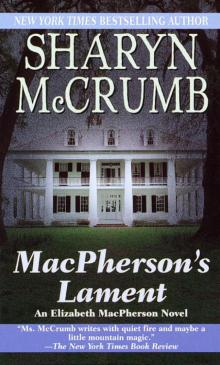 Elizabeth MacPherson 07 - MacPherson’s Lament
Elizabeth MacPherson 07 - MacPherson’s Lament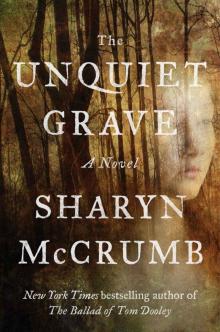 The Unquiet Grave: A Novel
The Unquiet Grave: A Novel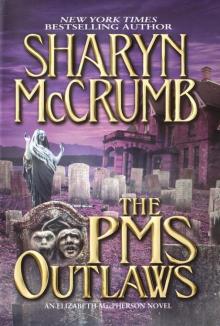 The PMS Outlaws: An Elizabeth MacPherson Novel
The PMS Outlaws: An Elizabeth MacPherson Novel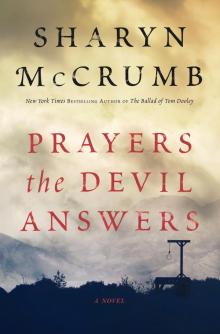 Prayers the Devil Answers
Prayers the Devil Answers Paying the Piper
Paying the Piper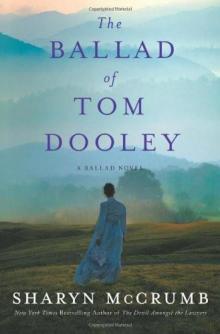 The Ballad of Tom Dooley: A Ballad Novel
The Ballad of Tom Dooley: A Ballad Novel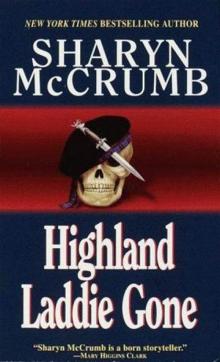 Highland Laddie Gone
Highland Laddie Gone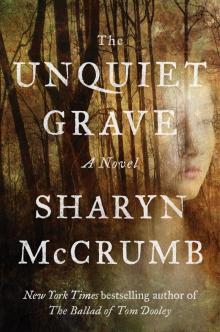 The Unquiet Grave
The Unquiet Grave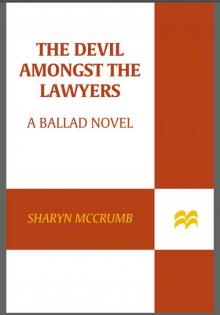 The Devil Amongst the Lawyers
The Devil Amongst the Lawyers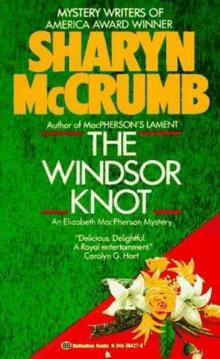 The Windsor Knot
The Windsor Knot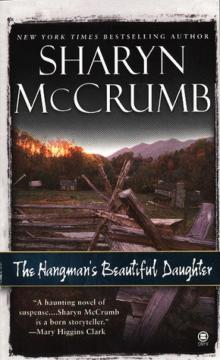 The Hangman's Beautiful Daughter
The Hangman's Beautiful Daughter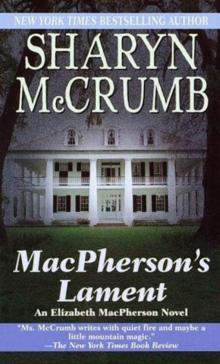 MacPherson's Lament
MacPherson's Lament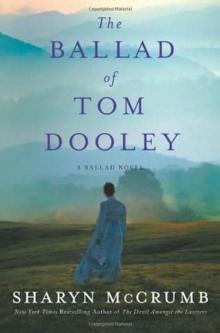 The Ballad of Tom Dooley
The Ballad of Tom Dooley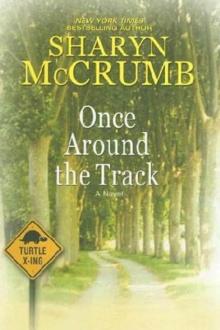 Once Around the Track
Once Around the Track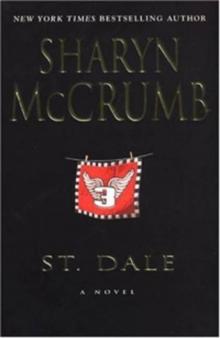 St. Dale
St. Dale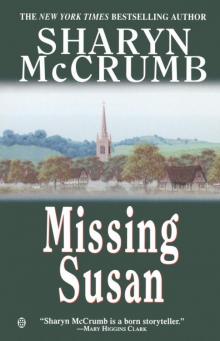 Elizabeth MacPherson 06 - Missing Susan
Elizabeth MacPherson 06 - Missing Susan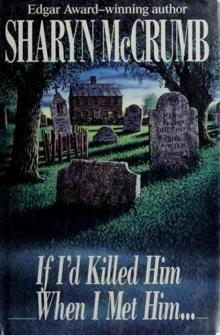 If I'd Killed Him When I Met Him…
If I'd Killed Him When I Met Him…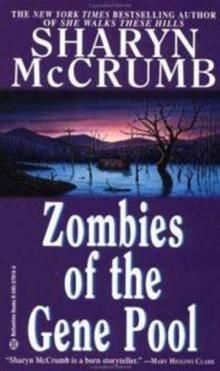 Zombies of the Gene Pool
Zombies of the Gene Pool Bimbos of the Death Sun
Bimbos of the Death Sun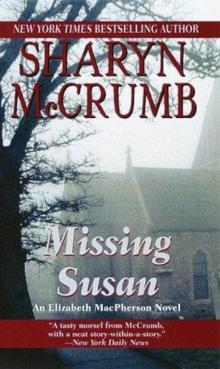 Missing Susan
Missing Susan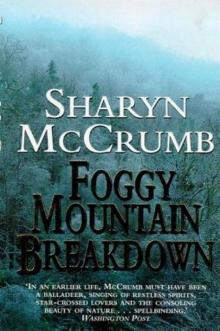 Foggy Mountain Breakdown and Other Stories
Foggy Mountain Breakdown and Other Stories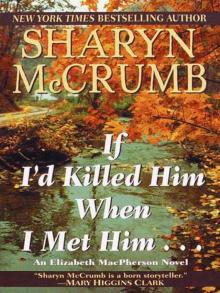 If I'd Killed Him When I Met Him
If I'd Killed Him When I Met Him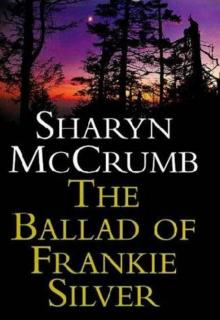 The Ballad of Frankie Silver
The Ballad of Frankie Silver Lovely In Her Bones
Lovely In Her Bones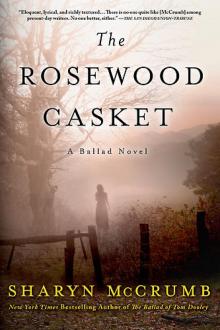 The Rosewood Casket
The Rosewood Casket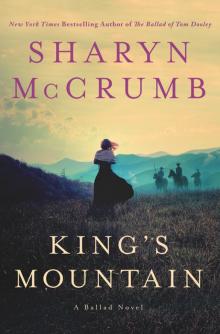 King's Mountain
King's Mountain